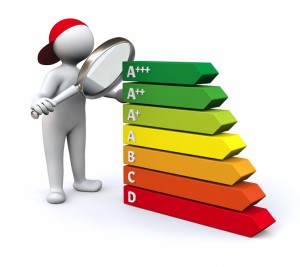 Despite EU climate targets for a low carbon economy, far-reaching CO2 reductions have not been achieved yet. One main approach to achieve this goal is to enforce energy efficiency, so to reduce overall energy consumption. Austrian data shows that while technological innovation reduces the energy input per unit output, the overall demand by private households increases continuously; the same dynamic applies to other western industrialized countries. This rise is in strict conflict with the vast range of energy efficiency improvements and technological innovations which aim to reduce energy consumption and hence gain emission reductions. Numerous empirical studies show that 30%-100% of expected energy efficiency gains cannot be achieved in reality.
Despite EU climate targets for a low carbon economy, far-reaching CO2 reductions have not been achieved yet. One main approach to achieve this goal is to enforce energy efficiency, so to reduce overall energy consumption. Austrian data shows that while technological innovation reduces the energy input per unit output, the overall demand by private households increases continuously; the same dynamic applies to other western industrialized countries. This rise is in strict conflict with the vast range of energy efficiency improvements and technological innovations which aim to reduce energy consumption and hence gain emission reductions. Numerous empirical studies show that 30%-100% of expected energy efficiency gains cannot be achieved in reality.
Current Austrian energy efficiency policies mainly comprise financial incentives for the adoption of energy-efficient technologies (e.g. subsidies, investment incentives, subsidized loans) and hence are not able to address multiple barriers emerging from market imperfections and policy interactions:
The rebound effect counteracts energy efficiency efforts: Generally, technological improvements imply a fall in the price of the respective good or service. This decrease results in higher demand of either the same good and service (direct rebound effect) or due to more available income, raises demand for other goods and services (indirect rebound effect). Furthermore, the considerable adjustments of prices and quantities caused by technological improvements and individual rebound actions lead to long term changes in the economy (economy-wide rebound effect).

Energy efficiency improvements face market barriers such as monopolistic agents and restricted market access. Similarly, households could lack knowledge and trustworthy role models on the benefits of energy efficiency which may block or decelerate the adoption of product innovations. Additionally, consumer habits or prevalent social norms among peers may also hinder or promote the uptake of technological advancements by private households.
The actual impact of energy efficiency policies depends strongly on the surrounding contextual factors and stakeholder constellation: Contextual factors mainly comprise national socioeconomic or institutional circumstances and regulatory obstacles that prevent the efficacious transposition and implementation of specific policy measures and EU directives. Additionally broader non policy specific contextual factors are given by environment, economic, social and technological factors. Both not only influence policy implementation directly, but also orientations, motivation and thus behaviour of different stakeholder groups.
Together, these dynamics hamper the success of energy efficiency improvements in terms of emission reduction and energy savings in private households. Therefore CATCH aims to tackle the adressed issues and will provide a comprehensive road map how energy efficiency policies in households may overcome rebound effects and market imperfections (in order to achieve the expected energy efficiency).